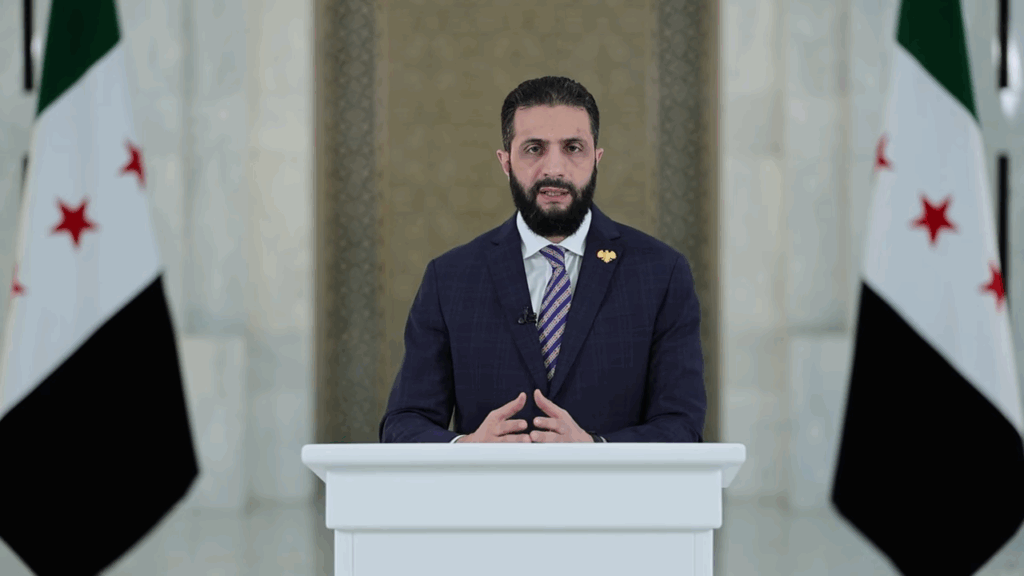
UPDATE: Syrian Interim President Ahmad al-Sharaa is facing a critical threat as Israeli military operations intensify in response to escalating violence against the Druze minority in Al-Sweida. This urgent situation follows Sharaa’s recent engagement with U.S. President Donald Trump, which has now come under scrutiny as Israel escalates its military presence in southern Syria.
Reports confirm that Israel is launching unprecedented strikes against Syrian targets, including significant locations in Damascus, as tensions rise following accusations that Sharaa’s forces are committing violence against the Druze. This marks one of the most severe crises of Sharaa’s seven-month leadership, which began after he seized power from long-time President Bashar al-Assad in December 2022.
Israeli officials maintain that these military actions are necessary to protect the Druze community, following disturbing reports of violence where hundreds of Druze, including women and children, have reportedly been killed by Bedouin tribes allegedly backed by Syrian security forces. The Israeli government has stated that ensuring the safety of this minority is paramount, turning the spotlight on Sharaa’s ability to maintain order.
In a striking warning, Reda Mansour, former Israeli ambassador and CEO of Jethro Jews for Druze, stated, “If Israel feels that a certain leader is a threat to its national security, it will operate.” The rhetoric from Israeli officials has sharply intensified, and Prime Minister Benjamin Netanyahu has openly criticized Sharaa’s leadership, signaling a potential shift towards targeting him directly.
The violence in southern Syria is compounded by the Trump administration’s recent decision to revoke the terrorist designation of Sharaa’s former faction. This controversial move has drawn mixed reactions, especially as Sharaa seeks to establish a stable government while claiming to protect minority rights.
Sharaa’s previous commitments to foster inclusivity and respect for minority communities have come under serious threat. His forces, instead of restoring order, have been accused of targeting various groups, including Alawites and Kurds. The backlash from Israel has escalated, with airstrikes becoming more frequent and ground troops mobilized in the region.
On July 16, Sharaa addressed the nation, insisting that protecting the Druze is a “priority” for his administration, while accusing Israel of trying to provoke war. However, the situation remains precarious, with many fearing that further Israeli incursions could destabilize the region even more.
As Israeli operations ramp up, the U.S. is attempting to mediate the situation. U.S. State Department spokesperson Tammy Bruce commented that the United States does not support the recent Israeli strikes, urging a focus on Syrian unity and stability. However, skepticism remains about whether Sharaa can effectively govern amid such turmoil.
This volatile environment is prompting discussions about the potential for a new wave of violence in Syria. Many believe that ongoing Israeli military actions could push Sharaa’s government towards collapse, leading to a power vacuum and possibly further conflict.
The international community is closely monitoring these developments, as the implications stretch beyond Syria’s borders. With Israel’s military actions just kilometers from Damascus, the situation poses significant concerns for regional stability and global security.
As this story unfolds, the focus will remain on the actions taken by both the Israeli government and Sharaa’s administration, and whether diplomatic efforts can avert further violence in the region. Stay tuned for more updates on this developing crisis.







